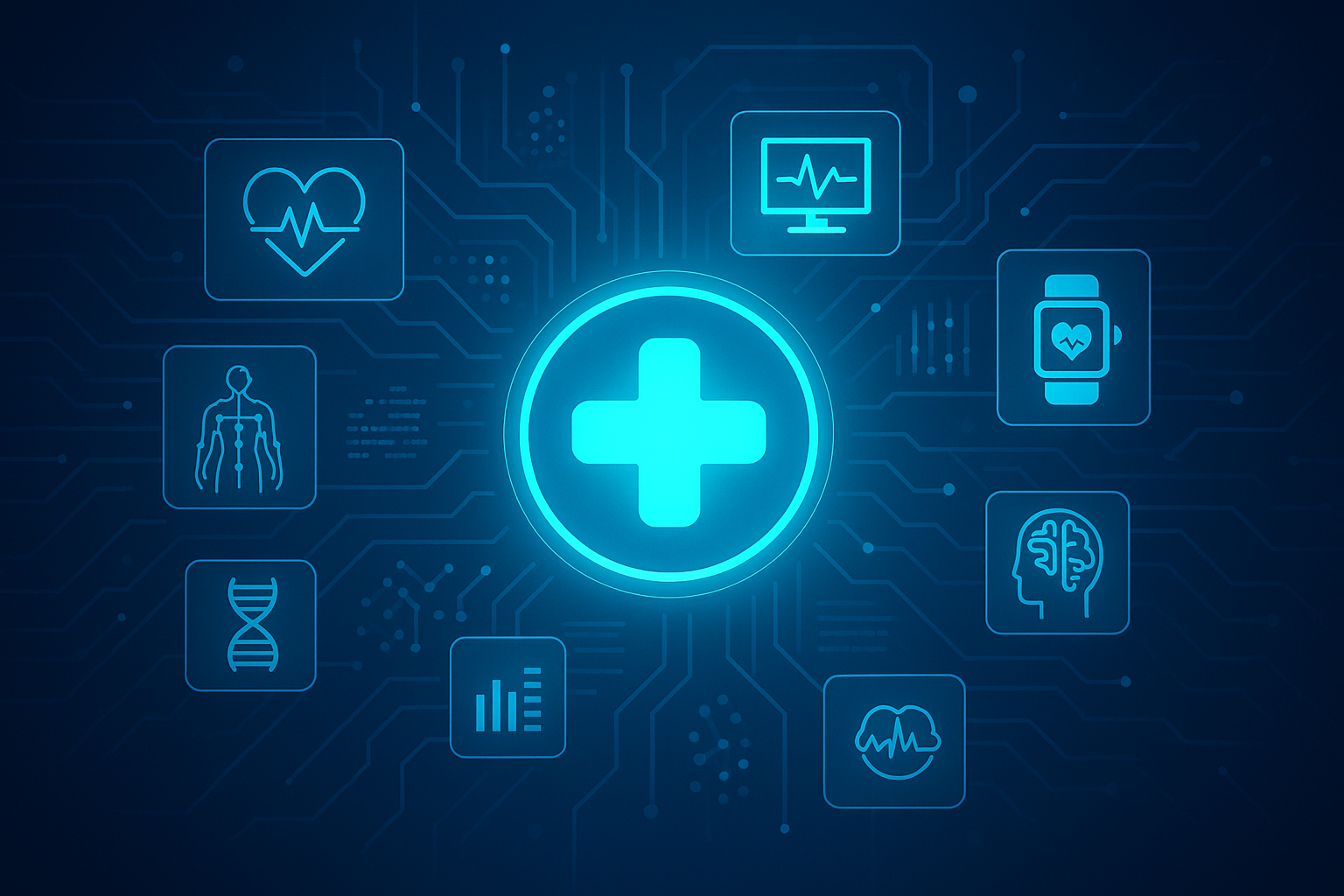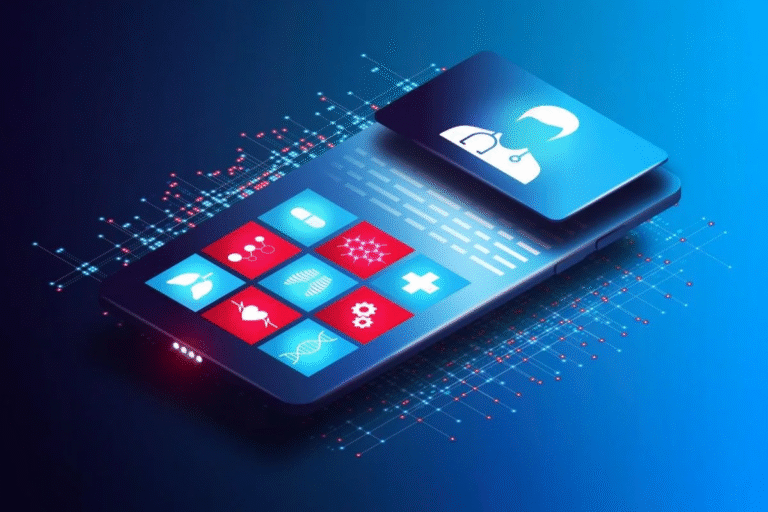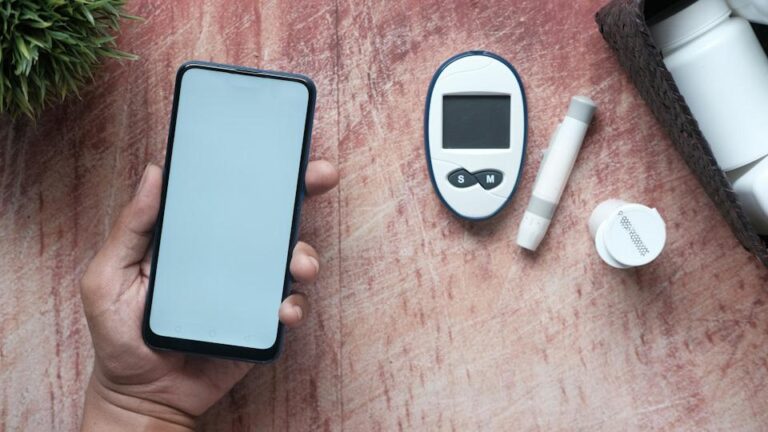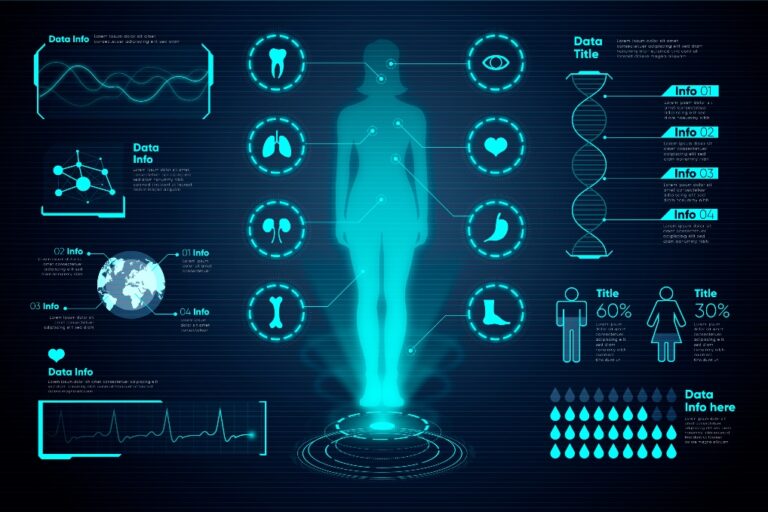10 Benefits of Digital Therapeutics
As the global health landscape evolves, digital therapeutics (DTx) are emerging as powerful tools reshaping the way we prevent, manage, and treat diseases. Compared to traditional medicine, DTx offers enhanced personalization, real-time feedback, and cost-efficiency — all through evidence-based, software-driven interventions. Here are ten compelling reasons why DTx offers distinct advantages.
Table of Contents
- 1. Personalization of Care
- 2. Continuous Monitoring and Real-Time Feedback
- 3. Accessibility and Scalability
- 4. Reduced Healthcare Costs
- 5. Improved Patient Engagement and Adherence
- 6. Data-Driven Insights for Providers
- 7. Evidence-Based Outcomes
- 8. Lower Risk of Side Effects
- 9. Complementary to Traditional Treatments
- 10. Empowerment Through Self-Management
1. Personalization of Care
Digital therapeutics use machine learning algorithms and user input to tailor interventions based on individual patient profiles. For instance, a DTx app for managing Type 2 diabetes can adapt dietary suggestions, exercise reminders, and medication schedules based on a patient’s actual glucose levels, logged meals, and physical activity data. This kind of hyper-personalization improves adherence and clinical outcomes. According to a 2022 study in the Journal of Medical Internet Research, patients using personalized DTx showed a 30% improvement in treatment engagement compared to those using generic protocols.
2. Continuous Monitoring and Real-Time Feedback
DTx platforms leverage wearable devices, mobile apps, and cloud computing to collect and analyze patient data in real time. This constant feedback loop allows clinicians to adjust treatment plans dynamically rather than waiting weeks or months for follow-up visits. For example, in COPD management, Propeller Health’s sensor tracks inhaler usage and environmental triggers, helping reduce emergency visits by 35%. Real-time monitoring ensures earlier intervention and better disease management.
3. Accessibility and Scalability
Patients in remote or underserved areas often face barriers to accessing traditional care. Digital therapeutics break down these barriers by delivering care anytime, anywhere. For instance, reSET-O provides opioid use disorder therapy entirely via smartphone. The scalability of DTx allows thousands to benefit from a single validated software platform — a feat not feasible with traditional delivery models.
4. Reduced Healthcare Costs
Cost reduction is one of the very significant benefits of Digital Therapeutics. DTx reduces hospital admissions, emergency visits, and medication dependency. A study on Omada Health’s program showed significant savings in diabetes prevention by avoiding disease progression. Employers and insurers are increasingly supporting DTx to mitigate the rising burden of chronic conditions on healthcare systems.
5. Improved Patient Engagement and Adherence
DTx applications are designed with user-centric interfaces, gamification elements, and feedback loops that promote active participation. Unlike traditional medicine where patients only engage during periodic doctor visits, DTx tools offer continuous interaction. Apps like Kaia Health offer musculoskeletal therapy that adapts to user progress and delivers motivation-driven feedback, significantly increasing long-term adherence compared to traditional rehab regimens. Others like EndeavorRx (approved for ADHD in children) include game-like challenges that make therapy enjoyable and effective.
💡 Did you know? The domain DTxHub.com—an ideal name for digital therapeutics insights and industry leadership—is available for acquisition.
Click here to claim it.
6. Data-Driven Insights for Providers
Digital therapeutics collect behavioral, biometric, and contextual data. Providers gain access to dashboards that highlight trends and risk flags. This level of insight supports precision medicine and enables timely adjustments that traditional prescriptions can’t match.
7. Evidence-Based Outcomes
Unlike general wellness apps, digital therapeutics must undergo rigorous clinical trials and regulatory approval. Products like reSET (for substance use disorder) and NightWare (for PTSD-related nightmares) are FDA-authorized and backed by peer-reviewed studies. This scientific rigor ensures safety, efficacy, and trustworthiness — aligning DTx with the standards of traditional pharmaceuticals.
8. Lower Risk of Side Effects
Unlike chemical medications, DTx interventions typically have no pharmacological side effects. This makes them ideal for patients who are medication-averse, have comorbidities, or are managing polypharmacy risks.
9. Complementary to Traditional Treatments
DTx is not anti-medicine — it’s pro-outcomes. Many therapies are designed to enhance drug efficacy or assist recovery post-surgery. For example, RelieVRx (the first FDA-authorized in-home virtual reality (VR) treatment), combines immersive VR with cognitive behavioral therapy (CBT) to enhance chronic pain management alongside pharmacological interventions.
10. Empowerment Through Self-Management
DTx empowers patients to take control of their health journey. With tools like journaling, progress charts, and interactive lessons, users become co-pilots rather than passive recipients of care. This sense of ownership adds to the benefits of Digital Therapeutics. and improves outcomes across a wide range of conditions, from mental health to metabolic syndrome.
Ready to Own the Future of Digital Therapeutics?
DTxHub.com is available now. Don’t miss this rare opportunity to secure a premium digital health domain.




